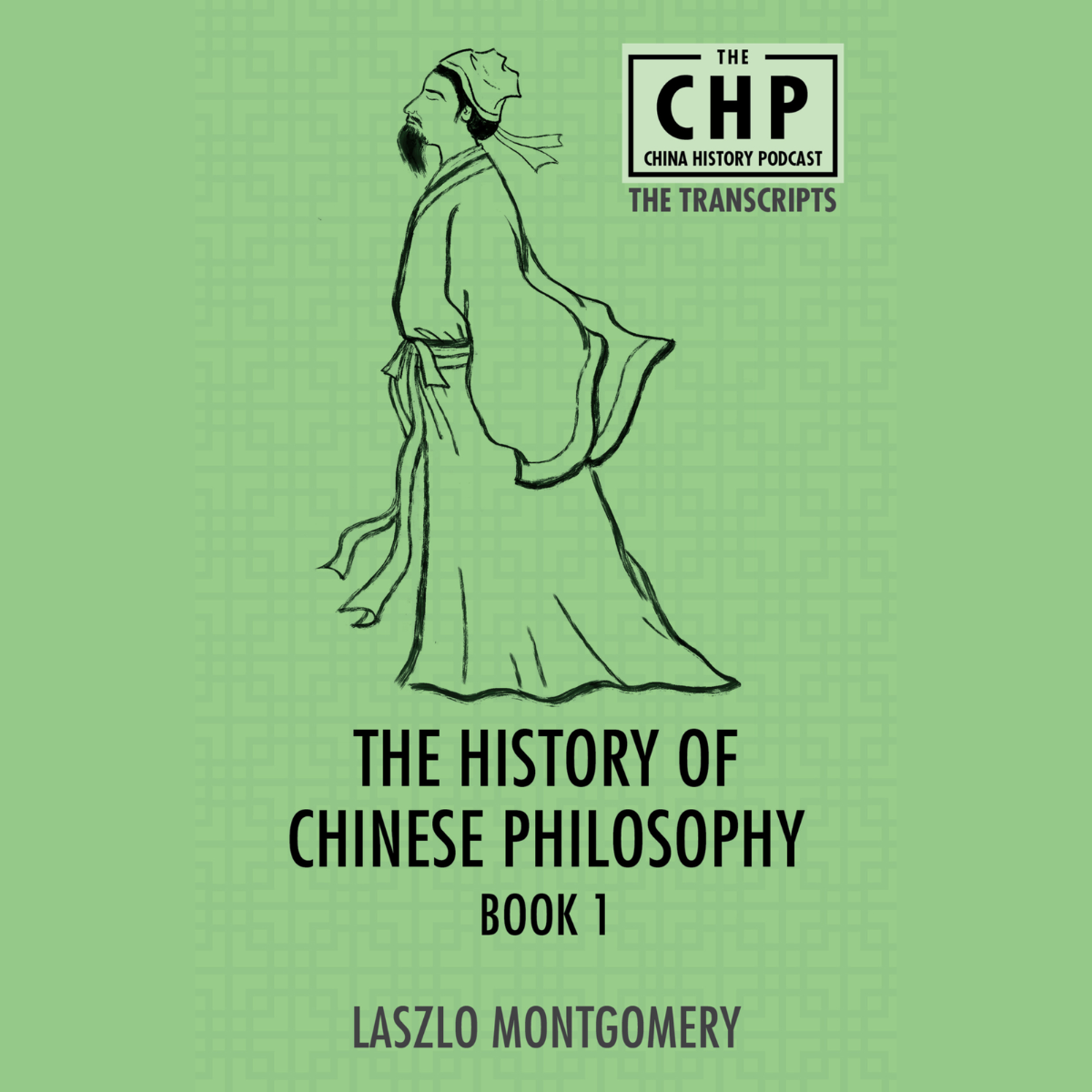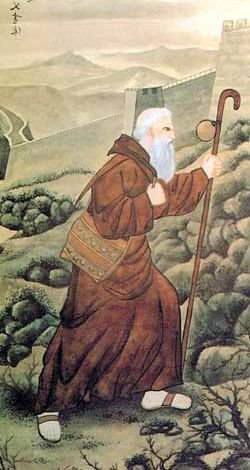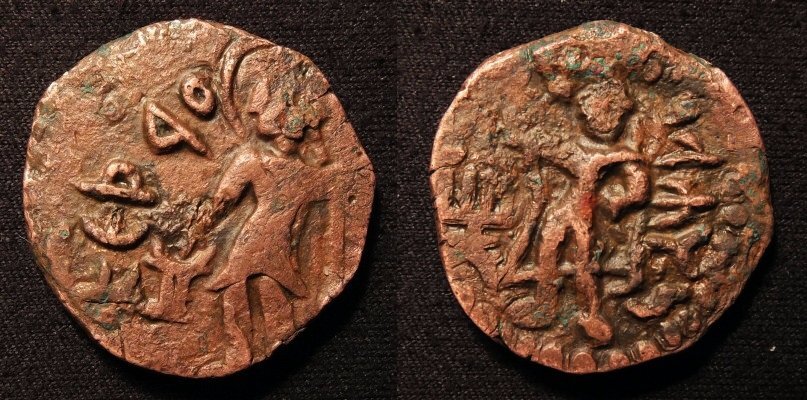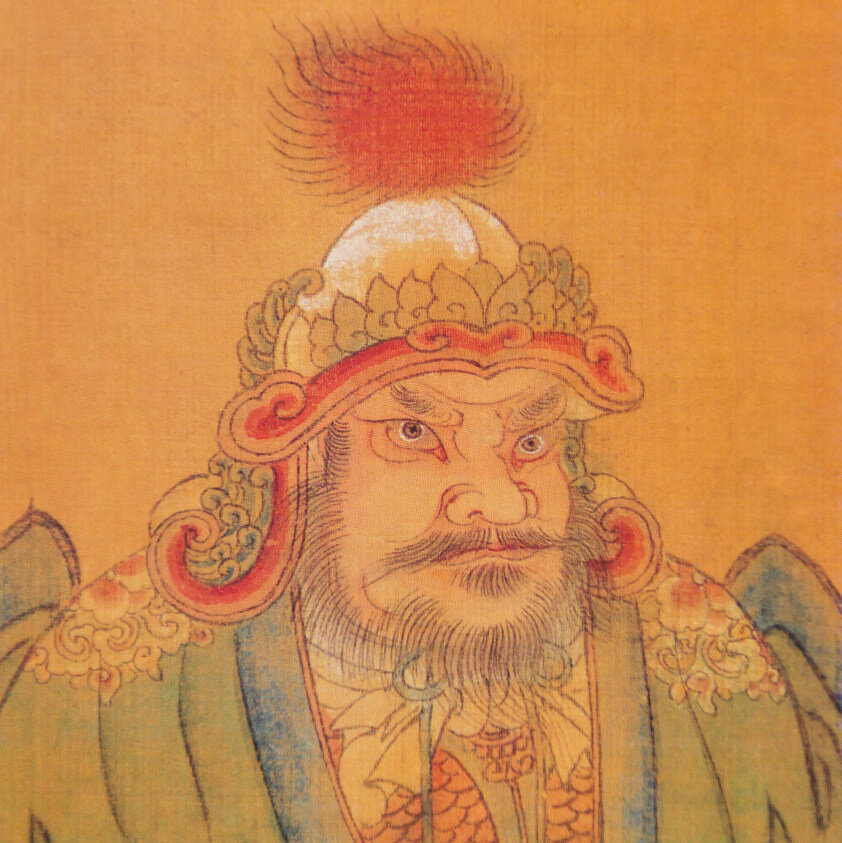Ep. 267 | Eunuchs in Chinese History (Part 1)
You knew this topic was coming sooner or later. This time Laszlo offers up a general overview of Chinese history with eunuchs serving as the prism to view it all.
In this episode, we’ll look at the story of the maybe/maybe not eunuch/official from the Qin Dynasty Zhao Gao. Then we’ll finish off with eunuchs in the Later Han including the rise and fall of the Ten Attendants.
Listen On Your Favorite Podcast Player
Terms in Episode
| Pinyin/Term | Chinese | English/Meaning |
|---|---|---|
| Ānyáng | 安阳 | City along the Yellow River in Henan Province |
| chéngyǔ | 成语 | Chinese idioms, usually four characters long |
| chūjiā | 出家 | they who leave or renounce the family…he/she is cast out and can never return home (eunuchs, monks, nuns) |
| Cáo Cāo | 曹操 | 155-220, one of the all-time greats and most well-known from all the figures of Chinese history. Statesman, warlord and man of letters. |
| Cáo Jié | 曹节 | Eunuch during the later Han who helped foil the plan to rid the palace of the powerful faction he belonged to. Not one of the Ten Attendants but a powerful force during the times of Emperors Shun to Ling |
| Dǒng Zhuó | 董卓 | Another of the major warlords of the late Eastern Han. Took advantage of the chaos in 189 to set himself up in Chang'an after sacking Luoyang. Bumped off by his ally in 192 |
| Emperor An | 汉安帝 | Han emperor 106-125 |
| Emperor Chōng | 冲帝 | Han emperor 144-145 |
| Emperor Líng | 汉灵帝 | Han emperor 168-189 |
| Emperor Shào | 少帝 | "Shao Di" means "Young Emperor" and applied to many emperors who ruled as children and died young. This Shao of Han was named Liu Bian. He reigned only in the year 189 |
| Emperor Shùn | 舜帝 | Han emperor 125-144 |
| Emperor Zhì | 质帝 | Han emperor 145-146 |
| Empress Dowager Hé | 何太后 | The second empress consort to the deceased Emperor Líng. Mother pf emperor Shao. Later poisoned to death by Dong Zhuo in the tumultuous year of 189 |
| Èrshísì Shǐ | 二十四史 | The official Twenty-Four Histories. The official chronicle of Chinese history from 3000 BCE to the Ming Dynasty |
| Fúsū | 扶苏 | Crown Prince of Qin who should have become the Second Emperor |
| Hàn | 汉朝 | Chinese dynasty founded by Liu Bang that ran from 202 BCE to 220 CE with a brief interval when Wang Mang's Xin Dynasty ruled |
| Hàn Huándì | 汉桓帝 | Emperor Huán of Han 146 to 168 CE |
| Hé Jìn | 何进 | Brother of Empress Dowager He anbd General IN Chief of the Army. Assassinated by the eunuch faction, something that led directly to their downfall |
| Hénán | 河南 | Province in northern China |
| Húhài | 胡亥 | Son of Qin Shihuang, reigned as Qin Ershi, the Second Qin Emperor |
| Jīn Yōng | 金庸 | Prof the Honourable Louis Cha, GBM OBE, 1924-2018, Hong Kong's most famous and beloved writer. Wrote Chinese wuxia novels under the name Jin Yong |
| Lady Fù Hǎo | 妇好 | Wife of King Wǔ Dīng… and a military leader and high priestess |
| Liáng Jì | 梁冀 | Powerful official and military leader during the reigns of Han emperors Shun, Chong and Zhi. |
| Liú Bāng | 刘邦 | 256-195 BCE, founder of the Han Dynasty. Also known as Han Gaozu |
| Liú Family | 刘家族 | All the emperors of the Han Dynasty came from the House of Liu |
| Lǐ Liányīng | 李莲英 | 1848-1911, powerful late Qing era eunuch during the time of Empress Dowager Cixi |
| Lǐ Sī | 李斯 | Great man of letters of his day and chancellor to the first and second Qin emperors |
| Méng Tián | 蒙恬 | Great Qin general and inventor. Famous for his construction of the Great Wall and his military campaigns against the Xiongnu |
| Míng | 明朝 | Chinese dynasty that ran from 1368 to 1644 |
| Nèi Tíng | 内廷 | Inner chambers of the royal palace |
| Qín Shǐhuáng | 秦始皇 | 259-210 BCE, known best as the first emperor of China |
| Qín Wáng Zǐyīng | 秦王子婴 | The third and final Qin Emperor |
| Qín Èrshǐ | 秦二世 | The second Qín Emperor |
| Qīng | 清朝 | The Qing Dynasty ran 1644 to 1911 |
| Shí Chángshì | 十常侍 | The Ten Attendants, the most powerful eunuchs at the court of Han Emperor Ling |
| Shāndōng | 山东 | Coastal province in northern China |
| Shāng Dynasty | 商朝 | China's earliest dynasty where written records exist, 1000 BCE to 1046 BCE. |
| Shūjīng | 书经 | The Book of Documents |
| Táng | 唐朝 | Chinese dynasty from 618 to 907 with a brief interval for Wu Zetian's Zhou Dynasty |
| Western Zhōu | 西周 | Also called the Former Zhou, early Bronze Age dynasty lasting 1046 to 771 BCE. Followed by the Eastern Zhou |
| Wáng Fǔ | 王甫 | Eunuch ally of Cao Jie |
| Wáng Mǎng | 王莽 | From 9-23 CE, the emperor of the Xin Dynasty following his usurpation of the emperorship. Following his demise was the beginning of the Eastern Han |
| Wèi Zhōngxián | 魏忠贤 | 1568-1627, Chief Eunuch during the Ming Tiangi Emperor |
| Wǔ Dīng | 武丁 | Shang Dynasty king 1250-1192 BCE |
| Wǔ Xíng | 五刑 | The Five Punishments of Ancient China. They changed over the centuries |
| Xiàng Yǔ | 项羽 | Rival of Liu Bang to unify China following the defeat of the Qin. Best at the Battle of Gaixia 202 BCE |
| Xiányáng | 咸阳 | The capital of the Qin Empire, near present day Xian in Shaanxi Province |
| Xīān | 西安 | Capital of Shaanxi |
| Yuán Shào | 袁绍 | Warlord during the final years of the 2nd century. Elder half-brother of Yuan Shu. Tried to take on Dong Zhuo and later Cao Cao, going down in defeat both times. Died in 202 |
| Yuán Shù | 袁术 | Colorful warlord who fought against the same enemies as his brother. Went down in final defeat in 199 |
| Yīnxū | 殷墟 | The Ruins of Yin, located outside Anyang in Henan province where the Shang Oracle Bones were discovered. |
| Zhào Gāo | 赵高 | Died 207 BCE, a life shrouded in myth and legend, served all three Qin emperors |
| Zhāng Jūn | 张钧 | Forthright official who tried to warn the emperor about the evil influences and corruption of the Ten Attendants. |
| Zhāng Ràng | 张让 | One of the most powerful of the Ten Attendants who held great powers during the time of Emperor Ling |
| Zhǐlù Wéimǎ | 指鹿为马 | Attributed to the story of Zhao Gao, to call a deer a horse….To intentionally deceive someone |














Laszlo chats with author Scott Crawford about the Han Dynasty, the Xiongnu, and Rome.